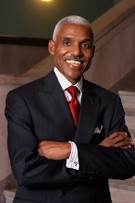Every year is next year for the mayor and Memphis City Council when it comes to the budget.
Calling it a “gap” budget, Mayor A C Wharton proposed a $628.3 million 2013 budget with a one-time 47-cent property tax increase to fund Memphis City Schools for the last year of the city’s obligation before unification with the county school system. The current rate of $3.19 would rise to $3.66. After this fiscal year, Wharton said the city would transition into a five-year strategic planning process that would supposedly avoid annual budget battles.
That increase would translate to about $120 per $100,000 of property appraisal. But it might not be the last word on city school taxes because a 2009 payment to MCS is still at issue in the courts.
Wharton said city property tax revenue has decreased by $17 million annually since 2009 because of declining appraisals. His proposed budget cuts $24 million from day-to-day operating expenses. But none of the cuts are in the police or fire departments which account for 4,519 of the 5,834 general fund employees. There are no layoffs of police officers or fire fighters in the proposed budget.
Council members had other ideas.
Janis Fullilove suggested getting more money out of nonprofits such as hospitals and universities and from businesses that make payments in lieu of taxes (PILOTs). As she noted, this idea has gotten mainstream support in other cities including Boston, with this nod from the Boston Globe.
Jim Strickland said Memphis is losing population, a statement supported by the last Census. Councilman Joe Brown said property taxes are lower in neighboring counties because there are fewer services and amenities, and disputed Strickland’s claim.
“Nobody’s leaving Memphis, that’s just a myth,” Brown said.
Shea Flinn said property taxes are probably going to go up by some amount and that members must compromise. Kemp Conrad said the council should avoid a repeat of last year’s budget sessions when “at the last meeting in June we cobble something together.” Ed Ford Jr. suggested taxing the (his estimate) 90,000 people who work in Memphis but don’t live here.
After listening to the suggestions, Wharton said Memphis is not alone in struggling to balance its budget, which he called a nationwide problem. He noted the city has added 10,000 jobs and $1 billion in investment and was favorably mentioned in a recent Gallup Poll of cities and hiring.
